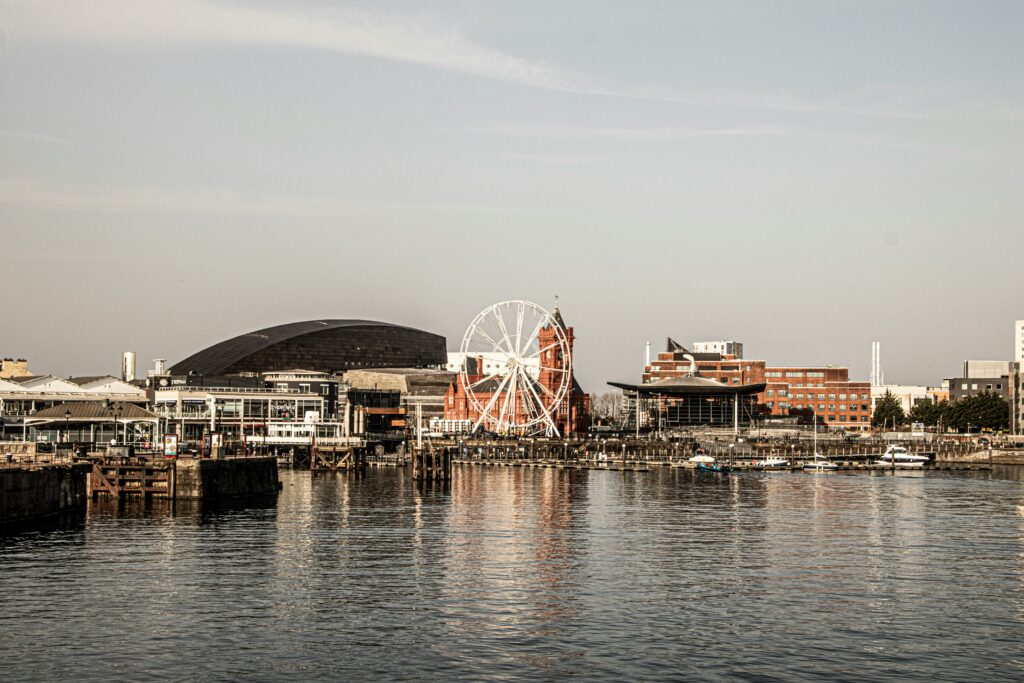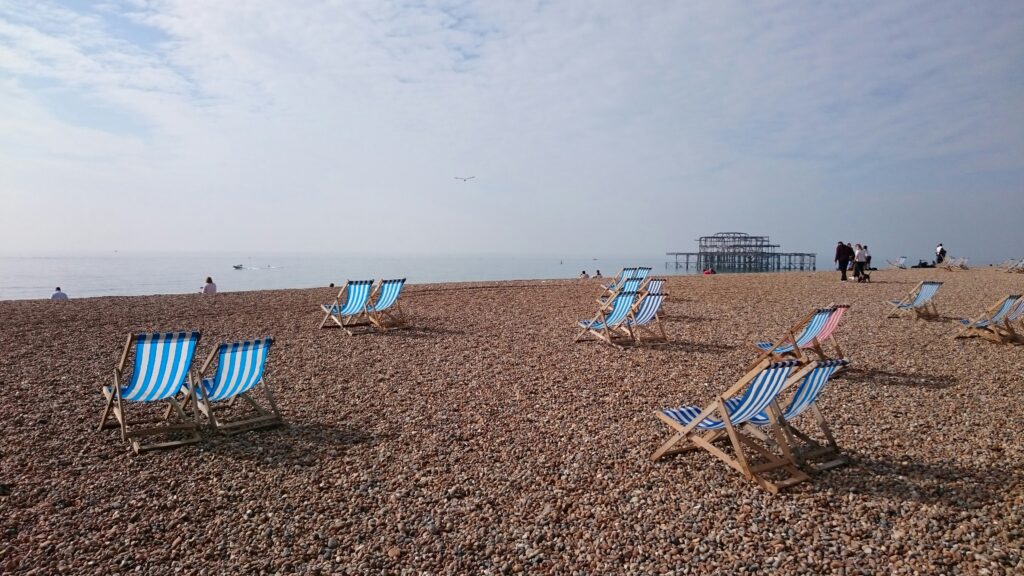
Types of Property in the UK: A Comprehensive Guide
Estimated reading time 9 minutes
The UK has quite a diverse housing market, from houses and flats to bungalows and cottages, each offering different selling points, challenges, and considerations. It could be a quaint terraced house in the heart of a city, or a spacious countryside detached home, but knowing the unique characteristics of each one will help you ensure that it’s a worthwhile investment.
This blog will explore the different types of properties found in the UK. Each property type’s key features will be addressed, as well as the pros and cons when it comes to selling. Don’t forget, we buy any house, regardless of its location, size and condition. Start your selling journey with SellHouseFast.co.uk today with a free cash offer.
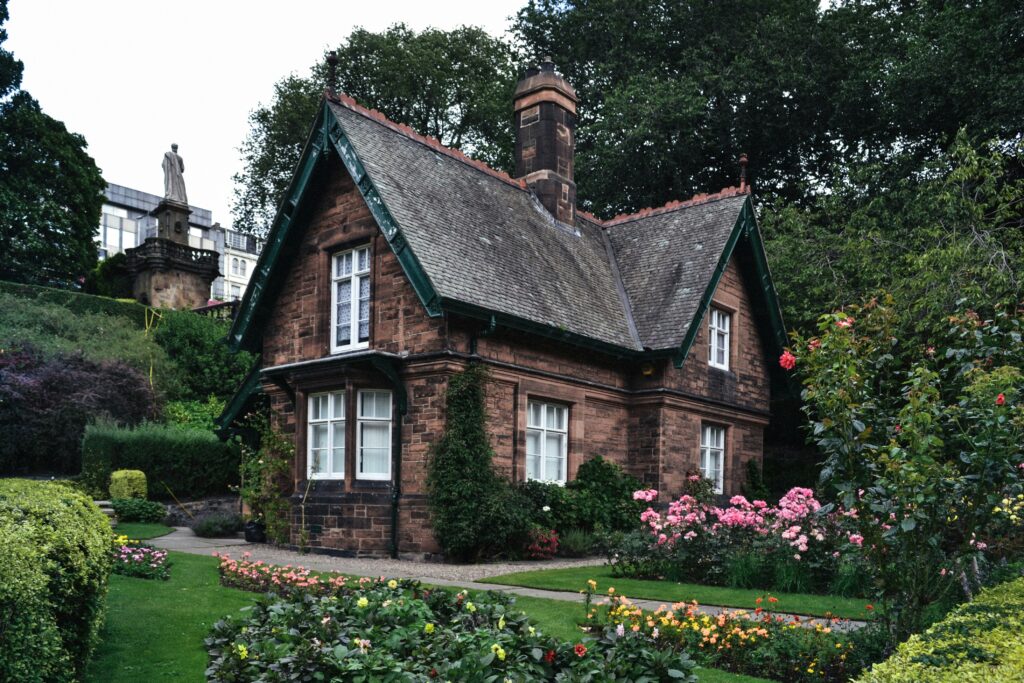
Detached houses
A detached house stands alone, with no shared walls with neighbouring properties. The latest date available states that there are 4.2 million detached properties in the UK. These homes typically offer more space, privacy, and flexibility for homeowners.
Pros of selling a detached house
- Detached houses are often in high demand, especially in suburban areas or rural locations where buyers seek more space and privacy.
- Detached properties usually fetch higher sale prices compared to semi-detached or terraced homes due to their larger size in often desirable locations.
- Families are often drawn to detached houses because of the ample space, larger gardens, and the potential for extensions or conversions.
Cons of selling a detached house
- While the demand is generally high for detached houses, they do come with a higher price tag. This means your buyer pool may be narrower. Only buyers with a larger budget can afford them.
- Detached houses tend to require more upkeep than smaller properties. Larger roofs, gardens, and multiple bathrooms can add to maintenance and repair costs, which may deter some buyers if the house is not well-maintained.
- While detached properties sell for higher prices, they may take longer to sell due to the higher price point and smaller pool of potential buyers.

Semi-detached properties
Semi-detached homes share a wall with an adjoined neighbour. This type of home is common in suburban areas nationwide. As of January 2024, the average price for a semi-detached home is £288,000.
Pros of selling a semi-detached house
- Compared to detached houses, semi-detached homes tend to be more affordable, which opens the market to a wider range of buyers, including first-time buyers and young families.
- Semi-detached houses are typically larger than terraced properties, providing more space for families while still being relatively affordable.
- Because they are reasonably priced and offer more space, semi-detached houses tend to hold their value well, making them a safe bet for sellers.
Cons of selling a semi-detached house
- The downside to sharing a wall with a neighbour is that potential buyers might be put off by the lack of privacy or potential noise issues.
- Issues with neighbours can affect a sale. If there are disputes or ongoing problems with the adjoining property they need to be disclosed.
- Semi-detached homes offer less privacy than detached houses, which could be a concern for some buyers that are used to completely detached homes.
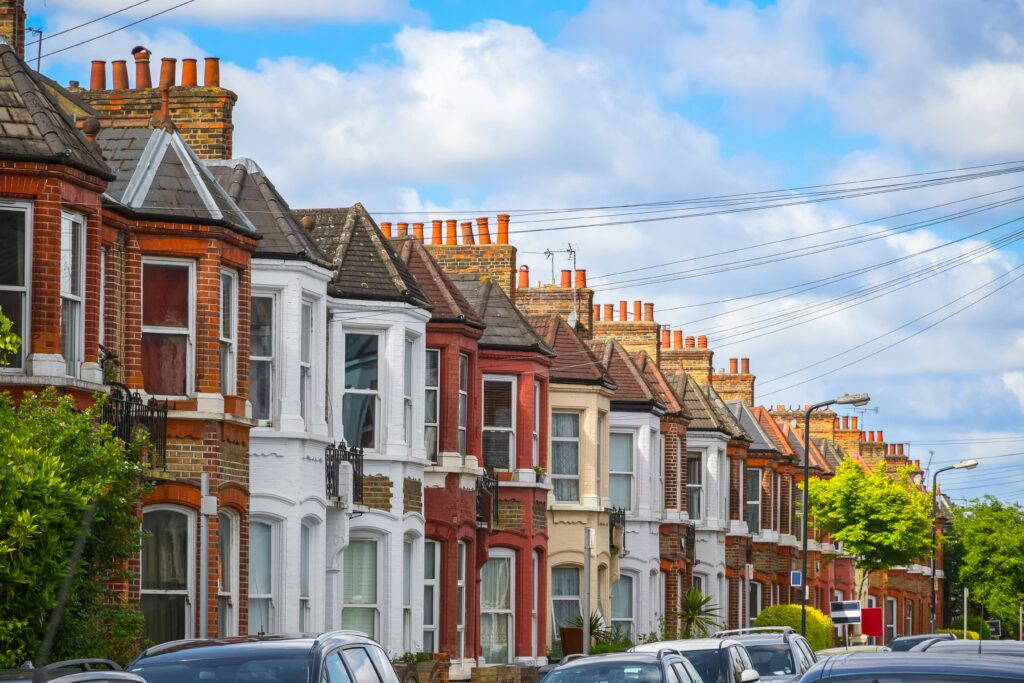
Terraced houses
Terraced houses are easily recognisable. Rows of identical connected homes are commonplace in cities and towns, with many dating back to the 17th century to accommodate growing urban populations. End of terrace homes are the most popular and come with a higher price tag because there is only one shared wall with a neighbour.
The latest data states that terraced properties make up the largest portion of the total housing stock in the UK, coming in at 26.3%.
Pros of selling a terraced home
- Terraced houses are often an attractive option for first-time buyers due to their lower price point compared to detached or semi-detached properties.
- In cities, terraced houses offer convenience and proximity to amenities such as shops, schools, and transport links.
- Terraced homes can have a lot of character, and many feature original architectural details like bay windows or fireplaces, which can be a strong selling point for buyers looking for charm and uniqueness.
Cons of selling a terraced home
- Sharing walls with multiple neighbours can make terraced houses less desirable for those who value privacy. Noise from adjoining properties can be an issue, especially in older houses with thinner walls.
- Terraced houses tend to have smaller gardens and less space for extensions compared to detached or semi-detached homes, which could deter buyers looking to expand the property.
- Because terraced houses are often older properties, some may need significant work or renovation, which could delay the sale or lower the price if the property is in poor condition.
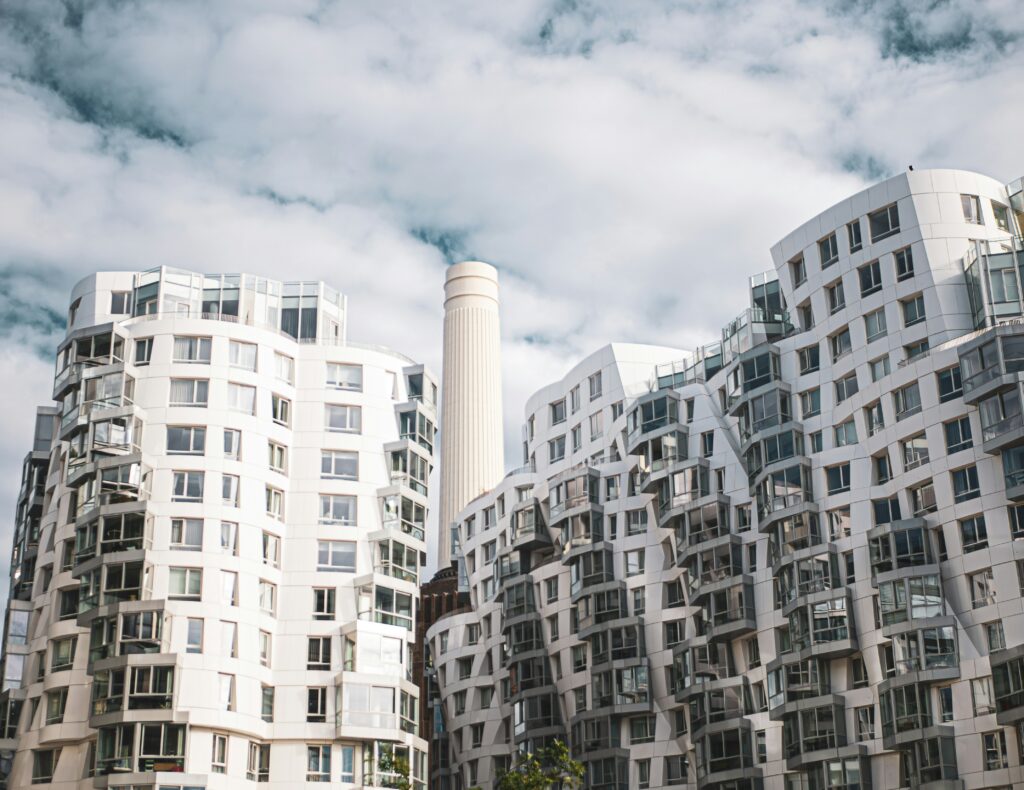
Flats and apartments
Flats and apartments are self-contained living spaces in multi-storey buildings. They are especially common in cities, where land is limited, and housing needs are higher. The average price of a flat in the UK currently sits at £191,500.
Pros of selling a flat or apartment
- Flats are often a more affordable choice for first-time buyers, making them a popular option in the market.
- Many flats are situated in desirable city locations, close to amenities, shops, restaurants, and transport links, which can increase their appeal to buyers who want easy access to urban life.
- Flats generally require less maintenance than houses, as the external building and common areas are maintained by the building management or freeholder, making them a low-maintenance option for buyers.
Cons of selling a flat or apartment
- Many flats in the UK are sold as leasehold properties, which can make them less attractive to potential buyers. Leasehold properties come with annual ground rent and service charges, which may discourage some buyers.
- Maintenance costs, management fees, and issues with the building’s overall condition can be a turn-off for potential buyers, especially if they’re high or if the building’s management has been problematic.
- Flats typically have less space than houses, which may be a downside for larger families or people who need room for pets or hobbies.
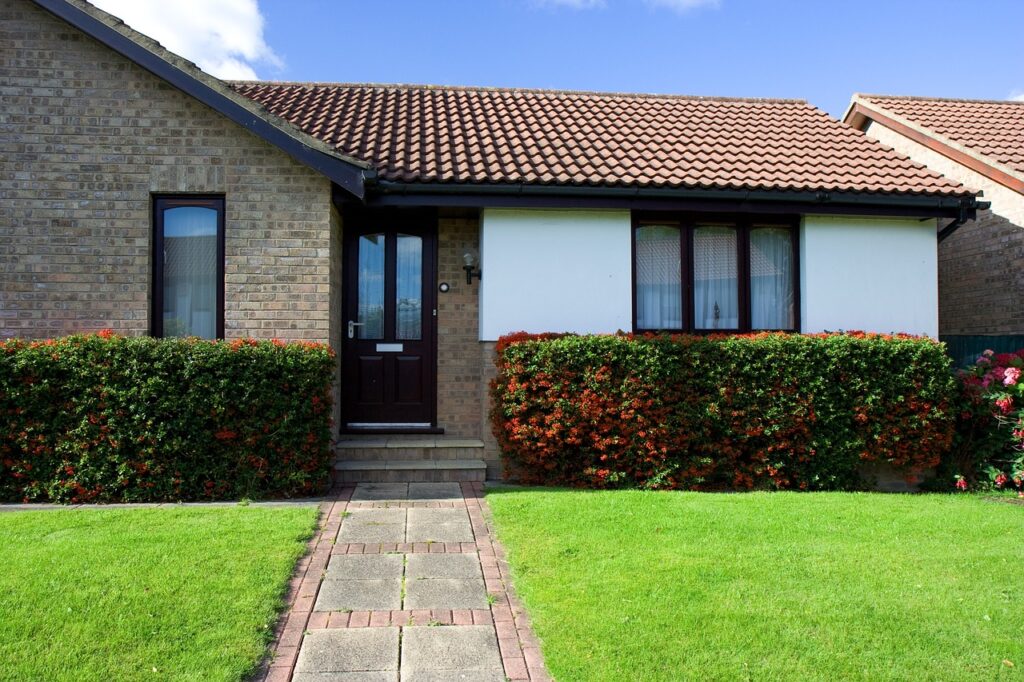
Bungalows
Bungalows are single-storey houses, typically with a large garden and no stairs. The latest available data (2021) shows that there are around 1.8 million bungalows in England, accounting for just 7.6% of the nation’s housing stock.
Pros of selling a bungalow
- Bungalows are highly appealing to older buyers or those with mobility issues since they are entirely on one level and do not require climbing stairs.
- With fewer levels to clean, maintain, and manage, bungalows are easy to look after, which is another factor that attracts downsizers or those seeking a simpler lifestyle.
- Typically located in quieter areas or suburban settings, bungalows offer peaceful surroundings and often more space around the property, which can make them ideal for those seeking privacy.
Cons of selling a bungalow
- While bungalows are great for some buyers, they can have a more niche market. Many younger families or buyers looking for larger homes may prefer multi-storey houses for the extra space.
- Bungalows tend to have higher prices per square foot than houses with multiple floors due to the land space they require.
- With no upper floors, expanding or extending a bungalow can be challenging and expensive, which may deter buyers who want more room for growth.
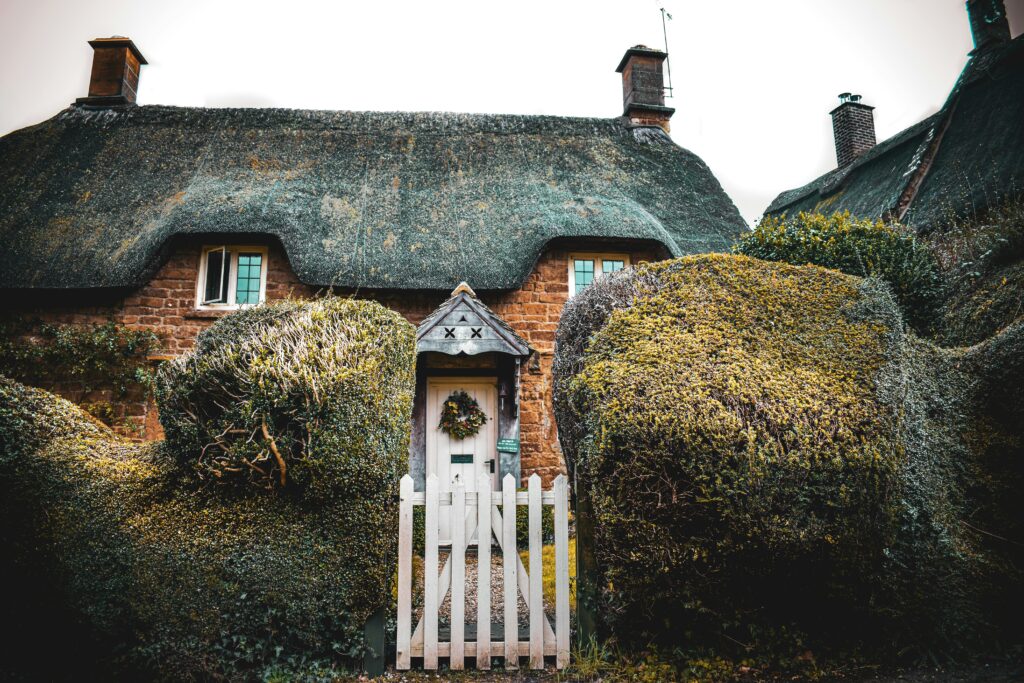
Cottages
Cottages are typically small, rural homes, often associated with traditional stone or brick structures. They are common in the countryside, particularly in areas like the Cotswolds and Lake District.
Pros of selling a cottage
- Cottages have a strong appeal for buyers looking for a rural or picturesque retreat, which can make them highly sought after in the right locations.
- The charm and character of a well-maintained cottage can make it a desirable property for buyers seeking a home with personality, history, and charm.
- Cottages offer an ideal lifestyle for those looking to escape the hustle and bustle of urban life. This can make them popular among retirees or people looking for second homes.
Cons of selling a cottage
- Cottages are often small, which could deter larger families or those needing more space. They may also require extensive renovations to bring them up to modern standards.
- Cottages are often in rural or less accessible areas, which may limit the number of buyers who are interested in living in more remote locations or without easy access to city amenities.
- Cottages, especially older ones, may require more maintenance and upkeep than more modern homes, which could deter buyers if the property is not in great condition.
Maisonettes
Maisonettes are typically two-storey properties that offer a unique blend of apartment and house living. They are often found in converted buildings or newly built developments and generally come with their own private entrance.
Pros of selling a maisonette
- They offer more space than typical flats, often with separate living and sleeping areas, making them attractive to buyers who want a bit more room than a standard apartment can offer.
- With their own entrance and no shared hallways, maisonettes provide a level of privacy that flats generally cannot, which can be a big selling point for buyers seeking a more independent living experience.
- Many maisonettes come with private outdoor areas like gardens, patios, or balconies. These spaces are highly attractive to buyers who value outdoor living or have pets.
- Maisonettes often offer a more affordable alternative to detached houses, which can make them a popular choice for first-time buyers looking for a property with the feel of a house but at a more accessible price point.
Cons of selling a maisonette
- Maisonettes can come with complex leasehold agreements or high service charges, which may put off potential buyers or complicate the selling process.
- While maisonettes offer more space than flats, they may still be smaller than a full house, which could limit their appeal to larger families who need more living space.
- Even though maisonettes have more privacy than flats, they may still share walls with neighbouring properties. Noise and lack of soundproofing can be an issue, especially in older maisonettes, which could deter potential buyers.
- may struggle to determine whether the property is more like a flat or a house, which could make it harder to price or market effectively.
Types of property in the UK
The UK housing market offers a broad spectrum of property types, each with its own advantages and challenges. When selling your property, it’s essential to understand the specific characteristics of your home and tailor your approach accordingly. By knowing the pros and cons of each property type, you can more effectively market your home, attract the right buyers, and ultimately achieve a successful sale.
At SellHouseFast.co.uk we have helped clients sell the likes of functional studios to detached family homes. From homeowners to buy-to-let investors, we are best placed to sell your home fast, regardless of its size or condition. It all starts with a free cash offer.
